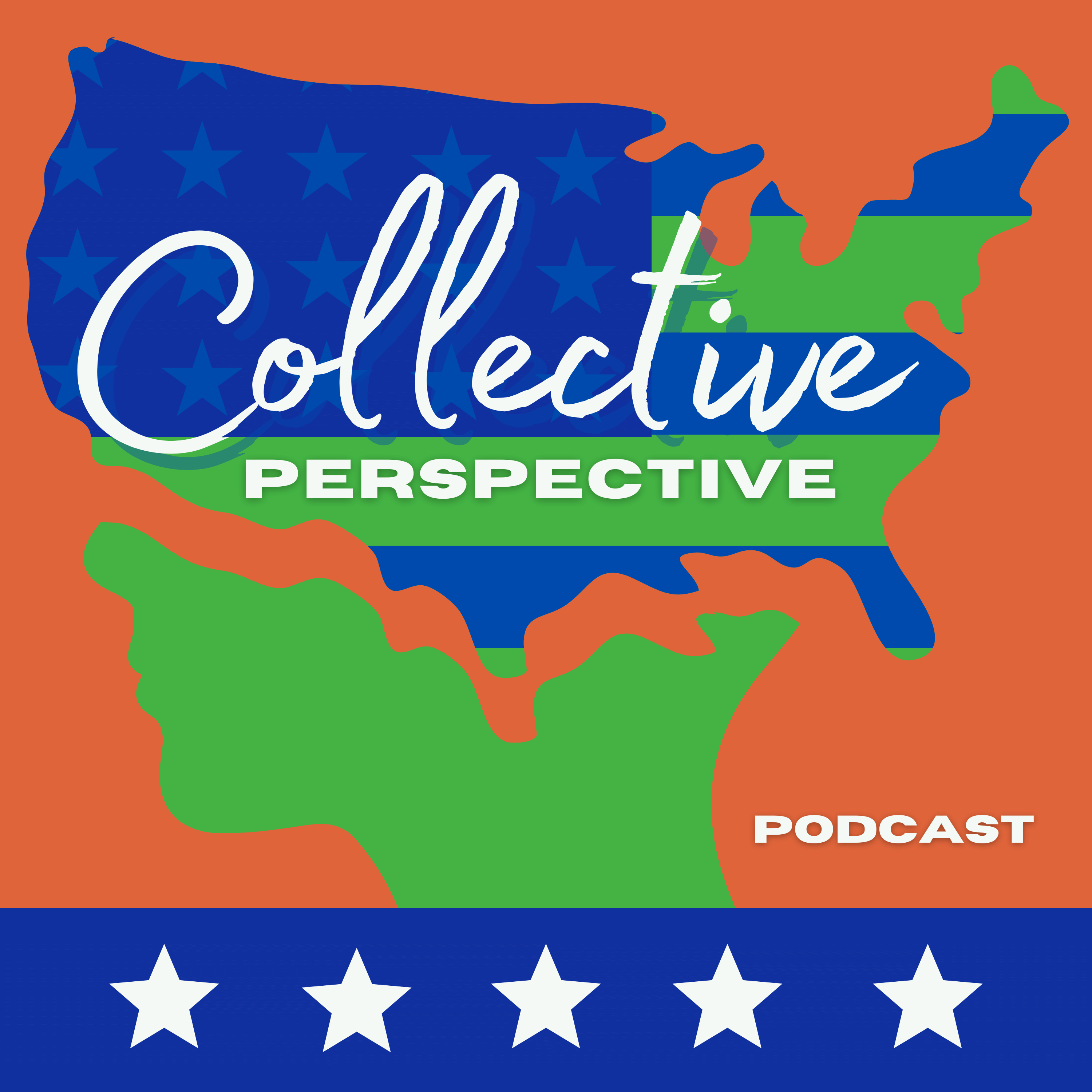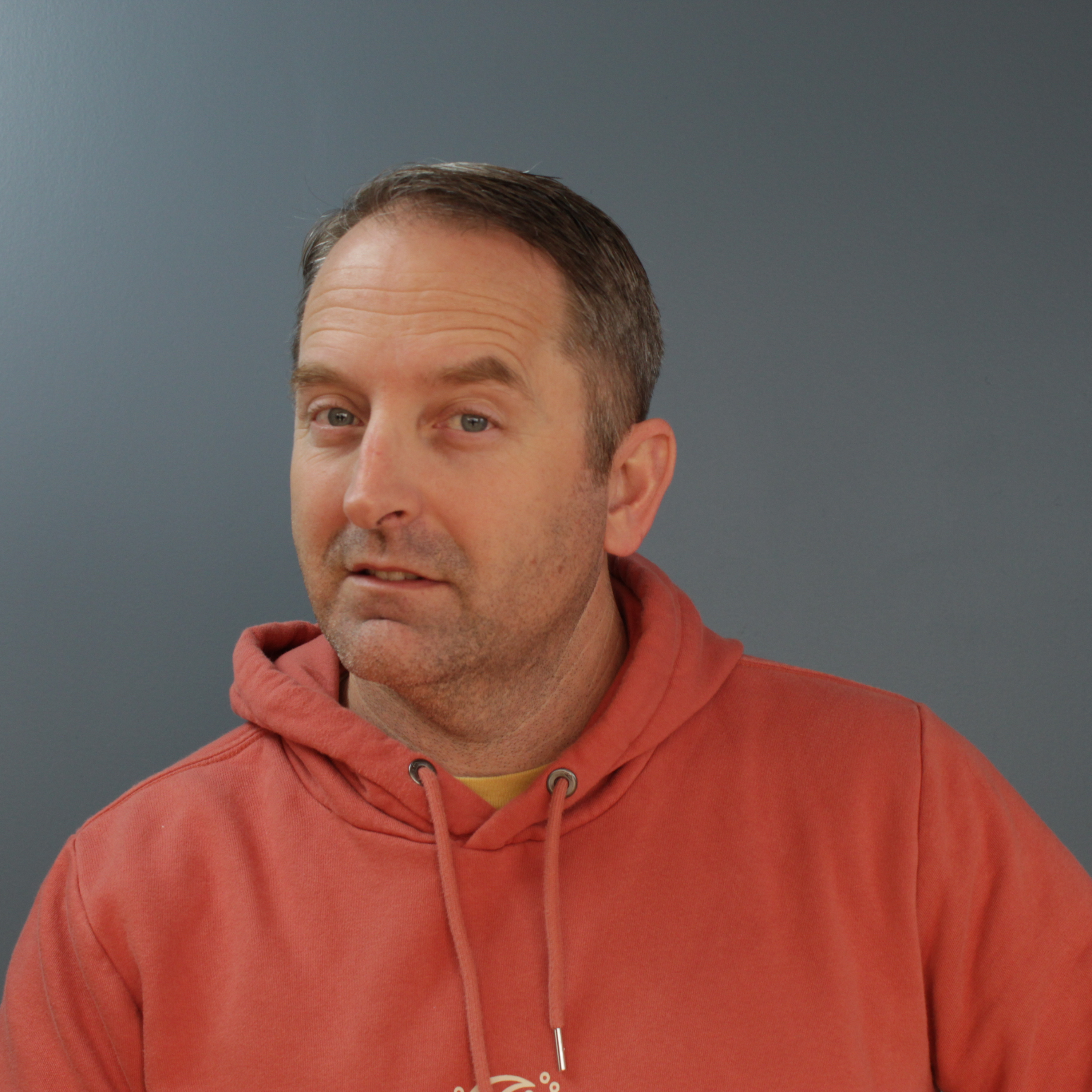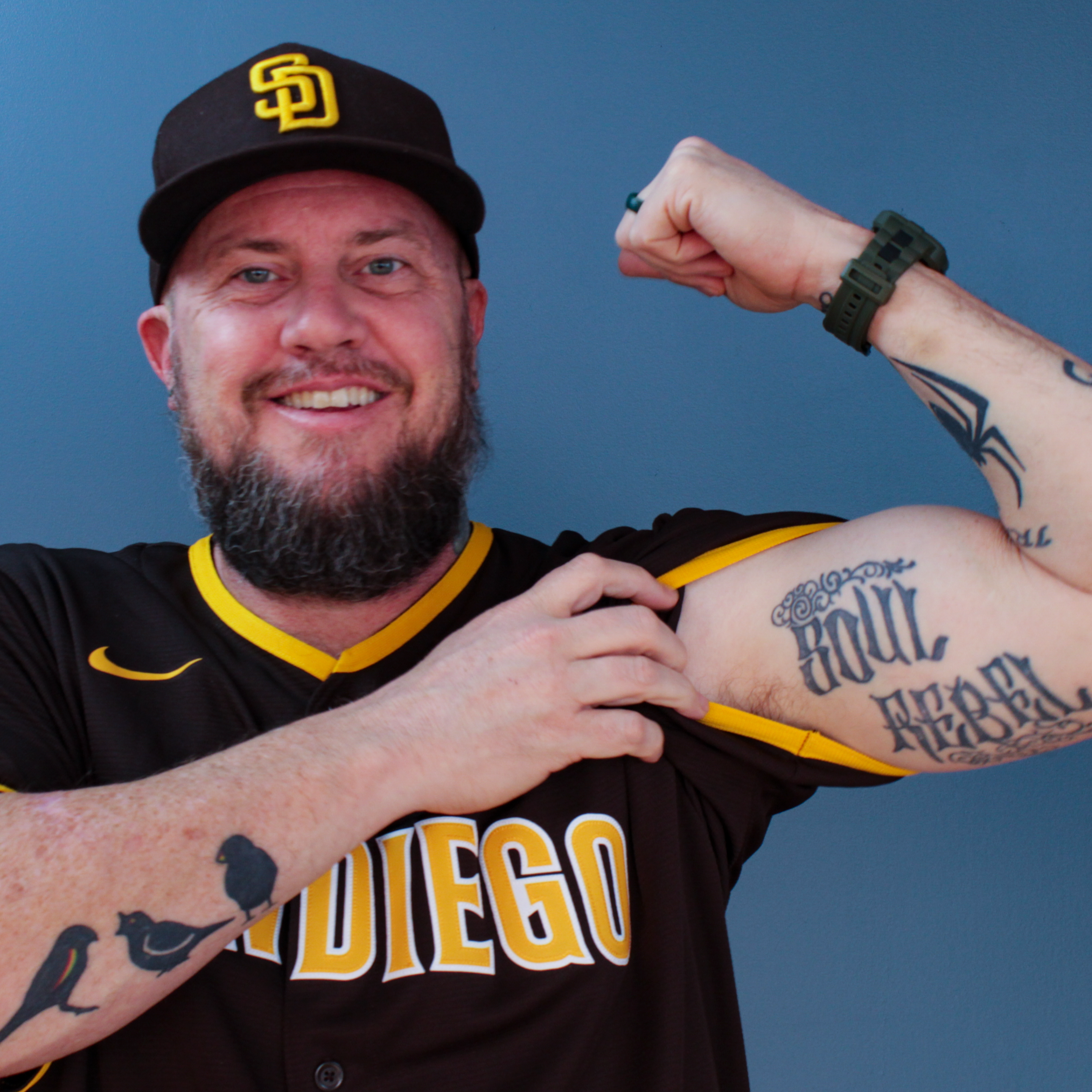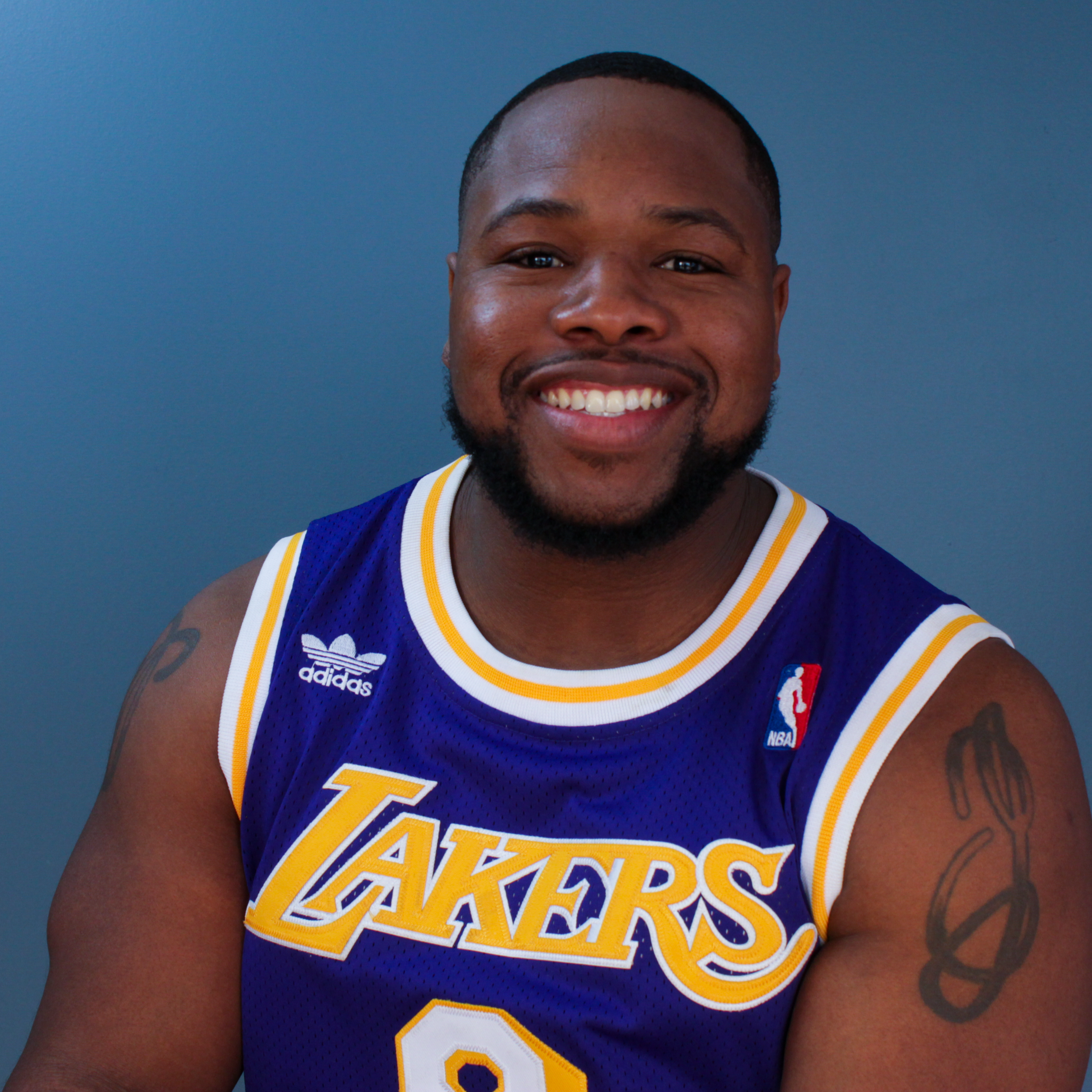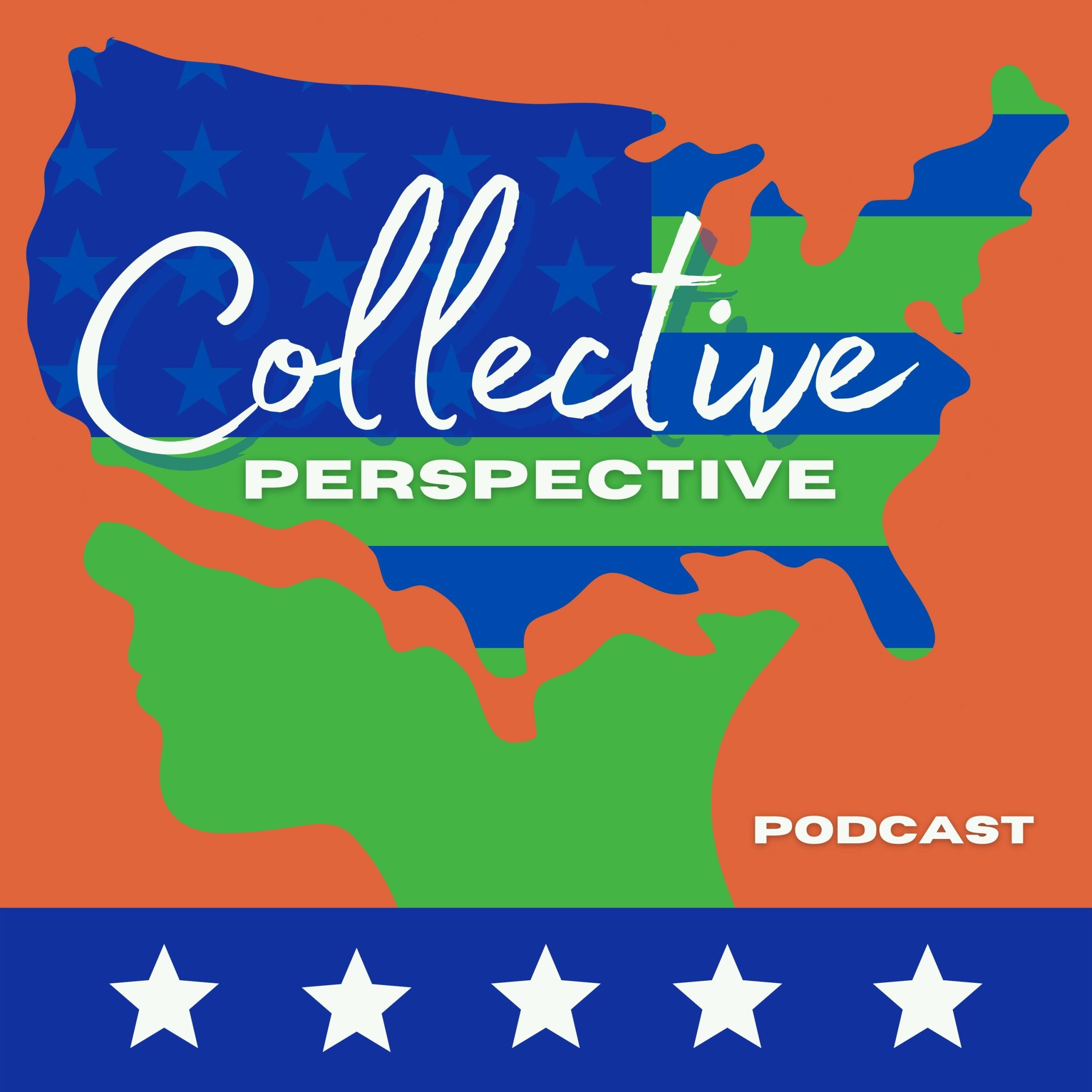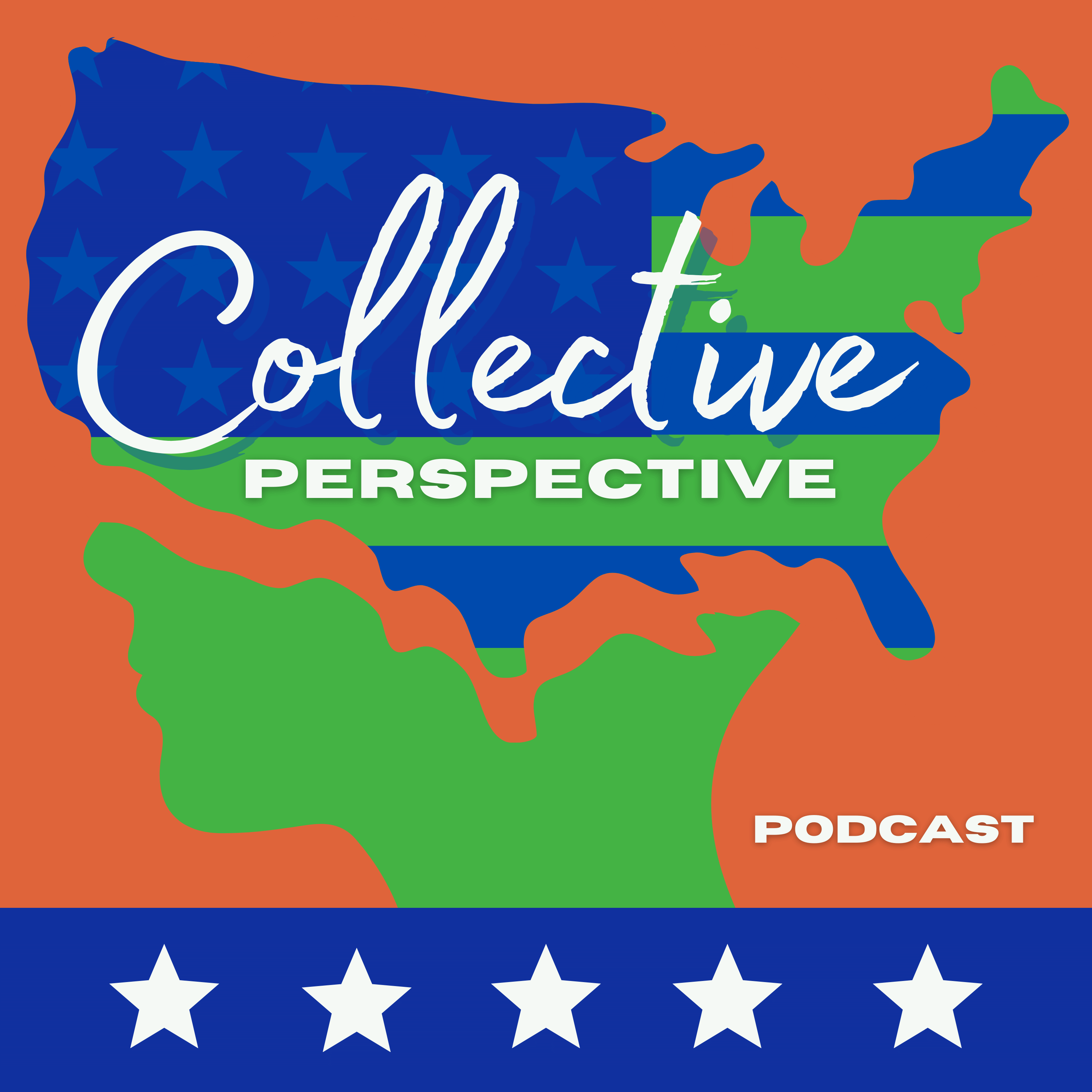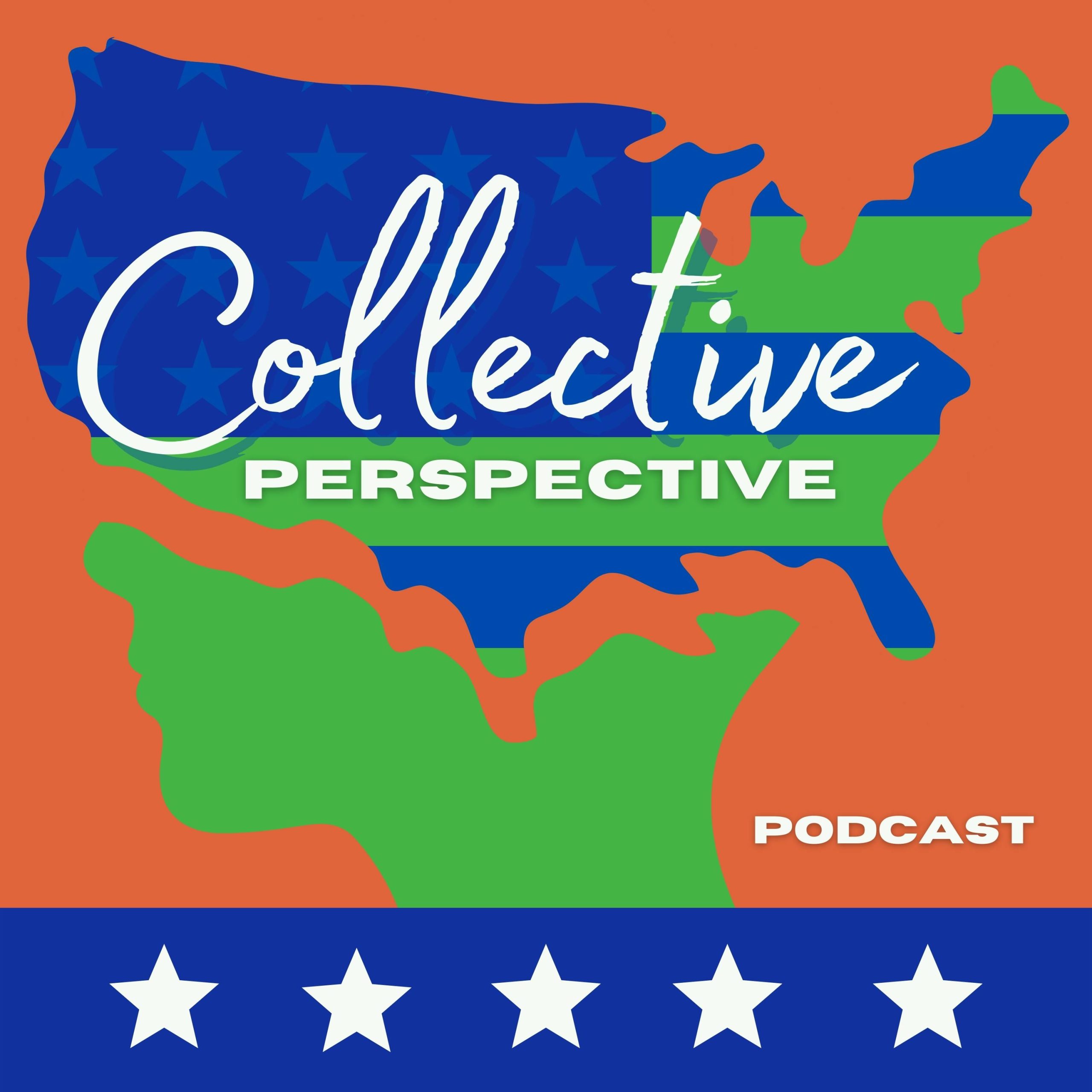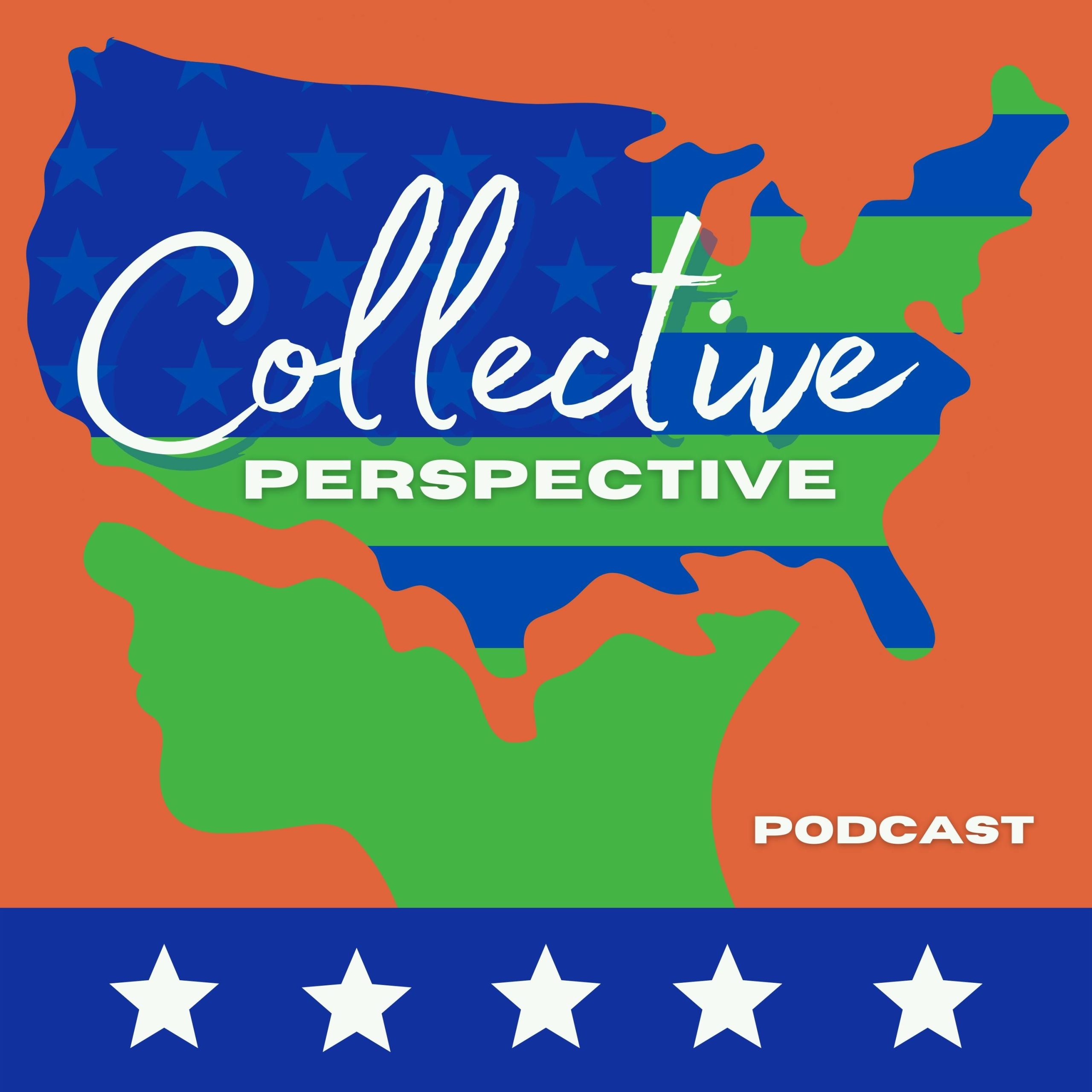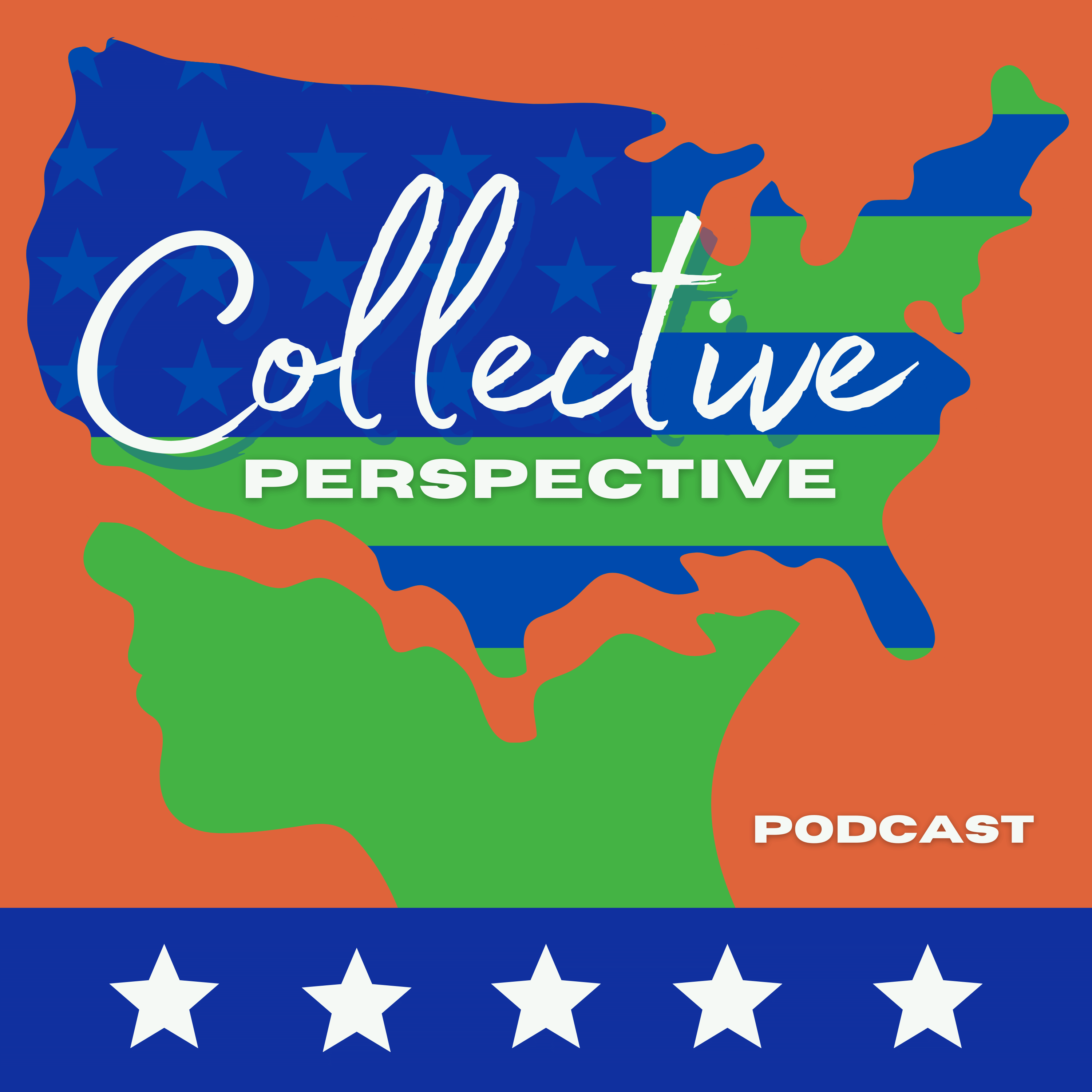Episode Transcript
Welcome to a new season of the Collective Perspective podcast.
As we dive into this season, we're focusing on the pivotal upcoming election,
widely considered as one of the most important of our lifetime. Join us
on this journey. As we navigate through diverse perspectives, dissect key issues and explore the profound impact on our shared future, get ready for insightful discussions and thought provoking insights.
Welcome to the Collective Perspective podcast season
three. Hey everybody, welcome back to The Collective Perspective and I have my buddy Travis here.
Good morning everybody.
Today we're going to talk about the Second Amendment. We felt it was important since last season we started with the First Amendment, which is really important.
There are forces out there trying to take that away from us. The only way they're going to be able to do that is to abolish the Second Amendment. Today we have and would like to welcome Mr. John Payne, the author of The second amendment manifesto, whatever the American should know. Hey, John.
Hey guys. Yeah.
Thank you for
having me on the show. It's good to be here. Cool. I don't know why I feel nervous, but we decided to take a little hiatus for a couple months.
Could you provide a brief overview of your background and what led you to write the second amendment manifesto? I
would love to. Yeah. So not an academic at all.
I mean, it's probably easier to say what I'm not than what I am. Right. So I'm not an academic. I'm not a professional author. You know, this is the only book I've written. What led me to it is really just being a normal American growing up in rural Virginia, where guns are just very common, right? I mean, my brother and I would play outside and you would just, you know, every October and November, you'd hear some guns going off in the woods and you know, Oh, okay.
It's hunting season. That's cool. And that was just how it was. Uh, you know, everybody I knew owned guns and it was just a normal thing. So it was interesting, you know, growing up, you move to a bigger city, you start hanging out with people of different political persuasions and. You know, also Europeans and my wife is European.
So she, of course, had a different perspective on guns than many Americans do. And I would find myself in these situations where I would be talking to some of these people and, you know, just sharing my views and they would share theirs. And obviously not all of those aligned and I would have strong opinions about it, but I couldn't argue very persuasively.
I could repeat the normal arguments, you know, well, you know, The laws prevent criminals from having guns. They're just going to ignore the laws anyway and get guns and do bad things with them and so forth. So why should law abiding people worry about it? Stuff like that, which is not a, an unreasonable argument really, but I wanted to go a bit deeper, you know, this is something I actually cared about.
Then I wanted to learn a bit more and be able to argue a bit more persuasively and maybe try to pull some people over to my side, uh, in a sense, um, or maybe change my opinion. I don't know. Maybe there are certain things that, you know, I would, you know, think differently about. And that was certainly the case when I wrote the book.
So yeah, the reason I wrote the book is really, this was also during, um, I actually started working on it before COVID and that whole rigmarole. Um, and of course all the, uh, the outbreaks of violence we saw in the U S during 2020 as well. So I started working on it in 2019, but I ended up publishing it, I believe end of 2020.
So it was kind of opportune timing in that sense, where obviously a lot of these issues were looming large in people's minds. And. about what the Constitution did and didn't protect. And I felt very strongly, obviously, about this particular amendment. So yeah, that's really why I wrote it.
Yeah, I think we both feel, at least I feel, that the Second Amendment is really the one that safeguards all the others.
And as part of an alienable right, something that you cannot take away from somebody is their right to self defense. And this, to me, is really the cornerstone of American society, starting from the beginning, as you talked about in the book there.
You did exactly what you recommended in the book to educate yourself.
Such an important thing in any subject matter is educate yourself about it
and knowing all sides We we are big proponents of that as well Don't just follow your own echo chamber get outside your box and listen to what the opposing arguments are and and and tackle them in a logical reasonable way That's exactly
what this podcast is meant to help people break that bridge.
You know, we don't want to come up at a strong conspiracy theory level, but more of this is baby food. We don't want you to choke, kind of get them to at least think for themselves.
Right. Well on that, if I could just jump on that point really quick, cause I think one of the best pieces of advice I ever got, and this is true of anything, right?
Whether you're. I work in marketing. That's kind of my background, whether you're debating about a marketing strategy or deciding. You know, where you want to go for vacation with your spouse, whatever it is. If you can't argue the opposing viewpoints well, at least the main ones, then you probably don't understand the argument very well, right?
Like if you ask somebody who is in favor of the second amendment, okay, what are the main arguments against owning guns? Just the top three. If they can't answer that, I mean, they probably don't understand it very well. I would say just having a lot of conversations about this, that's usually not the case.
You know, that's most everybody in America hears that. If you. Look at any news channel, essentially, it's usually the other way around, which is again, is why I wanted to write the book. But yeah, I just think that's true of everything, right? If you can't argue the opposing viewpoint, you probably don't understand the topic and should just be okay saying, yeah, I don't have a strong opinion on that.
How do you interpret the second amendment in the context of today's? I
would interpret it the same way the founders did. I don't think human nature really changes over time, right? So some people might call that the tragic versus I don't know what the other term would be, but I, the term I've generally heard described for that viewpoint is just the tragic view of mankind, right?
It's just this idea that we are all essentially going to repeat the same mistakes that have happened before. We're not moving towards some kind of utopian vision of humanity where we just, you know, all these problems will go away. We're always going to suffer from, really, it's all the sins you read about in Christianity, right?
Not to make it a religious point, but pride, it's wrath, all these things. I think even if you look at like pre Christian societies, we behave very similarly if you maybe not in the specific way we act out these impulses, but certainly in the impulses themselves. And I think the founders were very aware of that.
Some of them were a little more, let's say, rosy eyed about things than others. Jefferson, I think had maybe a little bit, he was a little bit more naive, maybe I think ironically, again, I'm a Jefferson fan, of course, but if you compare his views with Adams, John Adams. John Adams was Even very concerned actually about the democracy that they put in place or the Republic, I should say, since democracy is actually, uh, that word is never even in the constitution, but he was very concerned about the perils of a democratic society.
Getting back to your, your question about how it's interpreted. I think you really have to come at it from that perspective, because if you start one of these conversations with somebody, and I've just had this experience many times where you realize. They're just thinking about, they're not thinking about humans, they're thinking about some weird idealistic, you know, utopian version of perfected man that doesn't exist and never has.
Uh, where it's like, oh, he's never gonna be tempted to use violence to get what he wants in life. Of course he
is, we all are. I believe you said in the book, uh, not to interrupt you, but Yeah, sure. You said humans don't change, society does.
Yes, definitely. And I think this is, when you really think about it, it's obvious, of course, right?
And I think this is also just, uh, to make a bigger point is why we act so surprised when these things, you know, whether it's the Ukraine war, whether it's a situation in Israel right now, you know, if you actually start digging into the history of these events, it shouldn't come as a big surprise, right?
Like these power dynamics have played out, you know, there's a political Mearsheimer who's been predicting both of these conflicts for quite a while now. So anyway, the point is that I think. To interpret the Second Amendment, the point is, all of the amendments, in my opinion, were based around human nature.
And these are things that the Founders, you know, the reason they are considered inalienable rights is because our nature doesn't really change over time. I think that is also true of the Second Amendment. I think any time you have people who are Which is all the government is, right? It's a collection of people, whether they're elected or not, you're always going to have the temptation for those people to abuse their power and use it in ways that are not in the best interests of the people who they are supposed to be caring for.
And in my view, the Second Amendment is supposed to do now what it's always done since the beginning of this country, which is serve as a deterrence against that. And, you know, we can get into this a little more later about what exactly that means. But if you had to summarize the Second Amendment in one word, in my mind, it would be deterrence.
It's making, it's making it very difficult or very unappealing for people to abuse their, their power, right? It's not, you know, I'm not naive. Like if you look at the U. S. military, it sounds like both of you guys served in the military. If they, you know, if the military really wanted to go after the civilian population of the U.
S. or even a small pocket of it, It's not going to be a long fight, put it that way. But the question, it's not, all right, can civilians stand up to, you know, A10 Warthogs and M1 Abrams and things like that. The question is, could a government really ever even make that decision, right? Like imagine if it came to something like that.
I don't, I don't think it really would. I think any kind of civil unrest within the U. S. would probably look quite different from that, but it would be very costly politically. And there's a lot of people in that society who would not be okay with something like that continuing. And the point is it will be difficult.
It, there would be casualties on both sides and I think that's something that it does prevent governments from maybe at least the extreme versions of whatever abuses they might be planning.
You know, I, I feel that a lot of people that are opposed to the second amendment really come from inner cities or, you know, very, very high traffic or high population, population dense areas and they don't necessarily get the training or they're not around the guns as much.
Whereas you mentioned you were from, um, rural Virginia. Uh, I've lived in Virginia and I know, you know, it's, it's, it's beautiful up there. And yeah, when you, when you have that open space, you become more comfortable with the things and tools around you. What I feel though, is that. this pushback against the second amendment and the people that are, say, scared, if you will, uh, of guns is because of their lack of interaction with them.
Yeah. I think there's a lot of truth to that. And I think that's true of most things, right? If it's, there's, whether it's preparing your taxes or any other thing that you're not really looking forward to doing, the more you put it off and the more you are unwilling to confront it and just get your hands dirty and get into it.
The more, the more it looms large in your head and becomes this kind of boogeyman. Whereas then you, you, you actually address it and it just becomes, all right, it's, you know, a gun is really just a little piece of plastic and metal with some springs in it and, uh, arranged a certain way. It's, it's not that big
of a deal.
There's other things that are dangerous as well that we drive every day. Sometimes people do it intoxicated. Yes, yeah. Sometimes, uh, most of the time, no. Yeah, I
mean, it's, I was thinking, Right, yeah, don't let, uh, I saw a meme the other day that made me giggle. It was like, don't let drunk crashers give drunk drivers a bad name.
I've never driven drunk, by the way, for people listening to this, but I thought it was funny. No, I think it's a very valid point, though, right? Again, we do fear the things we don't interact with. This is obviously a big issue in the U. S., right, where we have this highly urban population that almost unanimously votes toward the left, which would obviously include against gun ownership, typically.
And then, uh, you know, the term I've heard is like blueberries and tomato soup, right? It's like all the counties outside of the cities tend to vote towards the right. That's, uh, touching on an even bigger point about American politics.
What do you believe are the core principles or values embedded in the Second Amendment?
I would say responsibility would be maybe the biggest one. And I think this is a really significant difference with how Americans just view the world versus other cultures. Well, obviously I can't speak for all of Americans. What I think if you had to define kind of the, the American spirit, it would be this idea of personal responsibility.
And you see that even a really interesting example of this again, as I've spent some time in Europe now, I know you all have to, is how Europeans look at say like personal finance, where they're very, The idea of having a credit card, like really scares them. The idea of like putting anything on debt or having a mortgage, right?
Like it is really scary to them. Whereas for Americans, we are much more comfortable with that. And obviously the upside of that is, you know, it's very rare for Europeans to take on like crippling student loans or take out a big loan to start a business. Or, you know, even just take some credit card debt to have a really nice vacation with your family or pay medical expenses.
Um, so. And you do have Americans who really get in a really tight spot in those situations. The flip side of that though is you don't see many Europeans who are great at investing. For example, you don't see, there are very few stories of Europeans like building significant amounts of wealth just through like the stock market.
And that's actually, I wish more Americans were able to do it. I'm not saying I'm wealthy by any means, but it's fairly common compared to Europeans in America. So what I'm getting at is we have, uh, in America, I think the basic idea is It is the land of opportunity and those are both good and bad opportunities, right?
Like you can make, you can really hurt yourself and whether it's financially, whether it's guns, potentially, right. Whether it's driving your car, whereas in Europe, I think the general idea is the government should play a greater role in deciding what you can and can't do. And also protecting you from, uh, the downsides of bad decisions and also the potential gain that you could have.
you see that with taxation as well. In general, the U. S. is a great place to start a business. It's usually harder in most European countries, and that's why. But at the same time, there's not a lot of safeguards for entrepreneurs, right? You take on a huge amount of risk if you want to start a business in the U.
S. It's tough, and you're not going to get some big, juicy grant from the government or anything like that, typically. So anyway, I think guns plays right into that, right? Yes, you can hurt yourself, you can hurt other people with a gun. Um, it is potentially a dangerous tool, of course. So are cars, so are knives, so are many other things.
In Europe, generally, uh, and I'm contrasting Europe and the U. S. You know, Europe is just generally a little more of a left leaning continent, right? Well, North America, obviously, um, with the U. S. And this is also true, of course, within the U. S. I think people who have more of a left leaning mindset have more of what you might call like a more modern European mindset, which is we want somebody else to help make these decisions for us, which is really what you're saying when you say you are against gun rights, right?
You want the government to say that I am not allowed to own this thing because the potential downside of something happening, me making a bad decision with it or somebody else taking it from me and doing bad things with it is just not worth it. giving me the ability to even have access to that tool.
So again, I think like the fundamental idea behind the second amendment is this idea of responsibility and, you know, whether you call it self government, that's also a form of responsibility, right? And, you know, I think all rights, uh, are dependent on responsibilities. This idea that, you know, we have a right to vote.
I mean, this is a, maybe a controversial idea, but I, I don't think the founders even liked this idea that everybody automatically gets the right to vote. And, you know, again, obviously they had. Some views we would find unsavory about who gets to vote back then. But I do think that should come with certain responsibilities.
Like it's not this freebie that you just automatically you're born and you should have the right to decide how the government operates, you know, like, so anyway, that's a, that's a bigger discussion, of course, but I do think fundamentally the American idea, like, uh, in my mind is this idea of somebody who is willing to take big risks.
They are willing to take responsibility for themselves, their family, their community. And. Act accordingly. Uh, you know, you're not waiting for somebody else to make those decisions for you.
Yeah, I think that because we've traveled, we've seen other countries, we've seen how the society is in those places, um, with their, with their laws and how everybody has
Pros and cons.
Yeah, the pros and cons of both. I was in Japan for three years, he's been all over the place too. And I think that it keeps coming back to this one saying that I've heard. I can't remember where it may, it may be a, like a Marvel superhero thing, but, or maybe even Superman with great power comes great responsibility.
But in a towards America with freedom comes great responsibility because you, you can't just be out there all gung ho for yourself and not think about, Hey, am I hurting someone else?
Which is kind of weird because freedom doesn't come without violence. I believe you said in the book too, right?
Yes. Yeah, absolutely.
Right. I think that gets to this idea of liberty versus ordered liberty in a society. If you looked at, say, ancient Greece or the Romans, really any functional society that had more freedom than just top down like a sultanate or something like that. The idea is there are still certain things you should and should not do, and that society has the right to impose those on you.
And if you don't like it, get out, leave. That's the basic offer. So yes, of course, we can obviously get into this too. I don't subscribe to the idea that Just because you can own a gun, you should do anything you want with it. Of course, you know, there's limits to that. If you're talking about resisting the government, no, I don't think you should just pick up a gun and start shooting government officials.
Of course,
that is, that is against our podcast
just to clarify. Yeah. So yes, no, I think liberty does come with responsibilities. And, you know, one other point too is just the U. S. is a really young country. And this is maybe a more practical point of like, how did the U. S. end up with this, this amendment? I do think the, the idea of responsibility, right.
And this idea of autonomy does predate the U. S. Like it goes back again, back to the Greeks, the Romans, England was a really interesting example. Most European Western countries acted on a lot of these principles. Of course, they did have a monarchy. Most of them. But even within that, there was still a great deal of autonomy.
So a lot of the decision making was delegated to people within that society. Um, and weapons ownership was extremely common in basically all of these societies. But another more maybe recent influence on the second amendment is just the American experience, right? Like think of the person who decides to get on a boat and, you know, the 1600s or the 1500s sail across the Atlantic ocean.
And hack out a life in some crazy wilderness where you're not even sure where it ends. Like, this thing could literally go for 10, 000 miles. We have no idea. Yeah, you don't know if you're gonna get
resupplied.
to hear
it. When I lived in Spain, I got the family crest tattooed on my back and then I sent it to my dad.
And at that time, he was working on the family branch. Doing all this research. He reached out to the family the Aldrich family foundation, and he was the missing branch of the entire tree He was able to submit that and we found out that we were on the second boat after the Mayflower.
Really? That's cool
That's
really
cool.
The family.
Wild.
Wow. Crazy, right? I don't think you told me that before. No, I have goosebumps right now Yeah, that's wild, right? Ascended from some nerdy
gentleman Yeah, there's the American experience is probably something I mean, it'll never happen again like that. You're never going to have a group of people who make a decision like that.
And even during, you know, the 1700s, the people you had coming over, that was still an extremely difficult voyage, very hostile territory, even though it was partially settled. And that just gets back to that idea of responsibility being, I think, kind of the defining. characteristic of Americans where, yeah, if you want to go start a farm in Indian country, you can go do it.
But the risk is on you, man. Nobody's coming. Exactly.
Yeah. Live off the grid. Yeah. What are some common misconceptions and misunderstandings people have about the second amendment?
Yeah, sure. I think one of the first is maybe a little controversial, which is there is an idea, and you see this actually from even many proponents of the second amendment.
A lot of the The marketing, for lack of a better word, around it is based around personal protection. And I think some of this is just, you know, marketing from gun companies, right? Which I understand. And it's from the NRA and other groups that, you know, the Second Amendment is about defending yourself against bad guys.
You know, you're walking home at night and somebody comes out of the shadows and you have a gun to scare them off. And sure, that, that's a good use of that weapon, right? To deter criminals, but I would say that is not the primary reason we have the second amendment. Again, I'm fully in favor of gun ownership for that purpose.
I think the founders were too. If you look at their writings, that was fairly explicit that they basically took that for granted that of course you can defend yourself with a weapon. But the real reason is what I was getting at a second ago, which is deterrence against a hostile government. Not necessarily just thugs along the roadside waylaying your carriage.
You know, they were very explicit about this to the point where you have documents where they're quite literally tallying up the number of soldiers that the federal government might bring to bear against the civilian population and how many civilians own guns so they could fight them and kill them.
So this was not hypothetical. This wasn't some abstract, well, maybe, you know, the forces of good and evil. No, no, this is just, yes, The goal is to keep civilians from getting killed by the government using force. So that would be maybe one that's just worth remembering. Again, I'm fully in favor of gun ownership for protecting yourself, your family and so on, but, uh, it is about, it's not about hunting and it's not about primarily self defense.
It is about killing bad actors in government if they try to attack you. So that would be maybe one. Another one is, a very academic argument. I don't think most people have even heard it. I had not heard it before I started working on this, which is just this, it's a very legalistic argument against civilian weapons ownership, which is the idea that, well, technically the founders, because they said militia in the second amendment, they weren't actually referring to civilians.
They just met people who were in the military, yada, yada, yada. There's a whole branch of Study around this topic and debates going back and forth up to this point, what I'll to summarize for the audience, the Supreme Court has ruled multiple times at this point that that is not true that the 2nd amendment does grant civilians people not in uniform, not connected to the federal government, the right to own weapons.
And one of the best counter arguments was, you know, Justice Antonin, Anthony Scalia, right? This was just it makes no sense. If you actually interpret it. If you look at what the founders wrote, which is what I just said, where they're literally talking about civilians resisting the federal government. How does it make any sense that actually no, uh, I'm this lawyer and I figured out through my modern interpretation that it only allows federal government employees to own weapons in the militia.
That doesn't make any sense to fight against the
federal government.
Yeah, yeah, exactly. Yeah. Cause they're That argument is just, it's very hollow. And again, I don't think that has much weight, especially now that the Supreme Court has ruled against it. Unfortunately, the reason I even included that is in the book is if the Supreme Court does try to hinder the Second Amendment in any way, it will probably be some version of that argument.
They'll just reinterpret it and try to reintroduce that. They would thankfully be going against it. A lot of precedent at this point, which is how our legal system largely operates, right? It's on case law. And so I hope that doesn't go anywhere, but we'll see. You know, I've I've been surprised. So, yeah, those would be 2.
and then again, another 1. I already mentioned is just this idea that it's only an American concept. This idea of weapons ownership, I think that's important to remember is again, going back to Europeans. I think a lot of Europeans have forgotten or maybe never were educated about their own history where yes, weapons ownership was very common in England.
It was very common in Germany. You have writings about this going back to 1500s and even earlier Greece, Rome, and so on. And even a hundred years ago, weapons ownership in many European countries was very common. Permissive. You have Ernst Jünger, who is arguably the most decorated German soldier of World War I, talking about just bringing weapons back from his time in World War I to his house, right?
Like, no paperwork, nothing, just taking back, you know, Mausers, whatever he wanted. And that was pretty common. You hear about, you know, uh, soldiers from World War II doing the same thing. This is even a problem that the ATF, Alcohol, Tobacco and Firearms has addressed because you have these unregistered or un serialized weapons that have been brought back from, uh, overseas and conflicts, you know, a hundred years ago.
Yeah, it's not an American thing. We've obviously, uh, our situation is a little different in that this is codified in the Bill of Rights. So it has more legal weight behind it. But this idea of private weapons ownership predates that. And I think that's important to remember. Let's see if there's anything else.
Oh, yeah. Another one that I think is a very common misconception. You hear this a lot is, especially in the lay press, that the founders could not have imagined the, the, uh, designs of weapons we have now, right? They couldn't foresee that we would have AR 15s and, uh, F 15s and so on. Uh, not that the civilians have those anyway, but you get my point.
And there's some truth to that, of course. Yeah. Like if Thomas Jefferson probably could not have sketched out Eugene Stoner's design for an AR 15, but the idea that they were naive. Time travel. Yeah, exactly. Yeah. Time travel. Precognition or something, the idea that they didn't see weapons advancing is ridiculous.
And they actually, if you look at the history, Jefferson already owned early variants of semi automatic weapons. Uh, he had several air rifles. The British were already using very rapid fire weapons in small numbers. They were. Somewhat experimental in the Revolutionary War, you had early variants of essentially machine guns, you know, guns that could fire 30 rounds a minute in some cases at that time, you know, Jefferson was already tinkering and building his own firearms parts, but they and also to it's worth remembering there were a great deal of innovations around weapons in general.
So technology was advancing very rapidly around that time. You know, the Bayonet, uh, became into existence around that time. You had rifles, right? Versus muskets, right? Muskets being smooth, bore rifles, having rifling that extended the range massively talking about shooting people from 50 to a hundred yards with a musket.
Now you're shooting people accurately from 500 yards. That's a huge change. And the reason that's important is the founders were very aware things would continue to change and technology would continue to change. And I think the Supreme Court ruling on this was quite interesting because they brought up a good point that if you look at the First Amendment, for example, cell phones didn't exist when that was written.
The internet didn't exist when that was written. Podcasting didn't exist when that was written. So does the First Amendment not protect us when we are using all of these modern tools? Of course not. And the same thing is true with the Second Amendment. Sure. Rapid fire, semi automatic weapons didn't exist when it was written, but the principles, human nature, going back to that point are the same.
And so of course those are protected. So those would be the main misconceptions I would say.
Hey listeners, this is Juwa from The Collective Perspective here, looking to elevate your business with top notch audio, video, and lighting solutions. Meet Jeff Altridge, a seasoned expert in AV technology. With over 20 years of experience, Jeff specializes in creating immersive environments that captivate.
Faith and engage audiences from, from corporate events to retail installation. He's got the skills to transform any space, but it's not just about the tech. Jeff understands that building strong relationships is key to fostering trust and ensuring seamless project execution. You can reach Jeff at 9 0 4 5 1 5 8 1 4 1 at JL.
D R I C H at GCPro. com for further details.
I think those are very valid. Worth more discussion with someone to try to sway their opinion or at least change their mind one way or the other. Leading to my next question is, how do you address concerns about gun violence while advocating for the Second Amendment rights?
Yes. So this is, it's a good question, right? And I think there's, A few ways to look at it. One would be just rates of criminality in the U. S. and then just violent crime in general. And then there's also the the point about mass shootings. If you look at permit like violent crime in general committed with weapons or guns specifically in the U.
S. There is not a consistent correlation between gun ownership and violent crime and either positive or negative. Some researchers have said that more guns equals less crime. Others have said that would be more the kind of the right pro Second Amendment interpretation of the data. The more left leaning interpretation is more guns equals more crime.
And you can find little isolated areas in the U. S. where that is true, just like you can find that for most things. If you start looking for trends, though, which is what we should be trying to pay attention to, the whole area that you're looking at, the argument doesn't hold up really in each way, in my opinion.
I'm not a statistician, but from what the research I've done, there are cases again, like I said, where you, uh, if you have more gun ownership, more permissive gun laws, crime is lower. And some cases where that's the opposite, right? Where, yeah, they do have slightly more strict gun laws and crime is a bit lower with guns.
Okay. But then you have examples where that's not true. Like, and this is kind of obvious when you look at it, like, uh, first of all, Gun violence is way more common in cities than outside of cities in the United States. Cities are almost unanimously more left leaning places with generally stricter gun laws.
And then if you look at a city by city basis, Washington, D. C., Chicago, these are places that are known for very high rates of gun violence, and also, at least up until recently in the case of Washington, D. C., had some of the strictest gun laws in the United States. Significantly stricter than even places in Europe.
This idea that gun laws prevent gun crime, I think, is generally untrue. So you have to start with that premise and just looking at the data that really shoots a big hole, pun intended, in the idea that, well, the Second Amendment Amendment. Is going to owning guns is going to increase crime. You know, it depends on the person.
Cry cars can also be used to commit crimes. We've seen that even recently, right? We had that incident a couple of years ago where somebody drove into a crowd of people with a car, using it as a deadly weapon. So it really comes down to the user to address the point about mass shootings. Really quickly.
That's a really difficult topic to look at just from a statistical viewpoint, because people define it very differently. So it really comes down to how do you define a mass shooting? So in some data, again, people who are generally more pro second amendment, they try to define it as maybe it's like 10 plus people, right?
Or are shot or maybe present. So again, you have different definitions. Even is it the number of people killed? Is it the number of people shot? Is it the number of people present? Is it the number of people shooting? All these things matter. People who are more anti Second Amendment try to define a mass shooting in the research, generally with a much lower threshold.
Well, maybe it's two people. Okay, so it was two people in an apartment having an argument and they shot at each other, right, in some inner city area in Chicago. In some research, that's defined as a mass shooting. So, it gets really tricky. Um, you see also weird examples of this when you look at the details.
The devil's in the details is what I'm trying to say. Where if you look at, um, school shooting, for example, well, in some cases, some 60 year old man driving into the parking lot of a local high school. That's half a mile away from the actual school, right? Well, the high school where I went to, they had a big campus.
So you could literally be a mile away from the actual building, uh, using some sports facility that was nearby some, you could have some older gentlemen, uh, decides to take his own life, unfortunately, drives into a parking lot like that and shoots himself in his car at 9 a. m. on a Saturday, and that would be considered a school shooting, uh, in some studies.
It gets really tricky trying to even get accurate data to say, well, like, what is the number of mass shootings or school shootings that happen in the U. S.? It's hard to say. What you can say is, you know, one of the largest and better done studies, in my opinion, that I wrote about in the book showed that when you adjust per capita, the U.
S. does not have a statistically significant difference in mass shootings versus European countries, which generally have much stricter gun laws. Some people will argue that too. Like they'll say, well, you know, you're including Norway and that was Anders Breivik. And that was this weird one off situation where he shot, you know, 60 people or whatever it was in Norway.
Normally their rates of gun violence are very low and you could say, okay, fair enough, but you would have to start removing the outliers in the U S too. And that also takes our average down quite a bit. Are we going to remove the Las Vegas shooting? Are we going to remove Columbine? So you get into this weird game where you just have to look at the data, I think.
The totality of the data and see what makes sense. And if you look at that, I think we're somewhere, if you ranked us in the number of countries, we're somewhere. around like 50th or 60th. And yet the, the really crazy part about this data is we have, the number of guns in the U S is genuinely shocking, uh, in civilian ownership.
I mean, it is large. It's almost certainly North of 400 million, maybe even as high as 450 million at this point. It is more than basically the next 10 worlds militaries combined just in terms of small arms. So we're talking pistols, rifles, machine guns. It is truly incredible. It's many, many times higher than the next largest country, uh, in terms of civilian weapons ownership.
So my question to people who think large amounts of civilian gun ownership is going to lead to large amounts of gun crime. Why, if we have just an order of magnitude more Private ownership of weapons. Why aren't we seeing just that a proportional increase or at least a, um, a, a correlation with an increase in gun crime in the US and we don't.
So, um, the data would just have to, we would, if that was true, if there was a strong correlation between private ownership of guns and uh, gun violence, then yeah, the US would look like some third world country. It would be Mogadishu or something. And that is not, not how it looks, uh, at least in most of the us.
Would it be crazy to think that the school shootings are probably the most heart wrenching ones and that it's done from an outside source, like influenced from someone else versus the actual shooter?
Yeah, uh, you know, and I think there, in many situations, there is certainly enough circumstantial evidence to show that's probably happening.
Even if right, and this is patterns. Yes. Yes. Yeah. If you're a, you're a pattern recognitionist, then yes. Uh, some of these things, yep. Become a little bit obvious. What some would call conspiracy. I joke with some of my friends, conspiracies are just spoilers nowadays. This is kind of similar to like the discussions around nine 11, right.
To get in the even more controversial territory where there's certainly good enough evidence. The government probably knew something was going to happen and didn't, uh, and allowed it to happen. Yeah, you know, I, I know there's like even, you know, more in depth theories about like, you know, the, uh, tower number seven and, you know, jet fuel doesn't melt steel beams or whatever, yada, yada.
I honestly, again, going back to my point earlier, I don't have a strong enough opinion. I haven't looked at it the data enough, but what I have seen. And I would say the same argument about a lot of the school shootings, right? And I detailed the most one of the more recent shootings in Florida, where the police were called to this kid's house.
This guy went to a school, shot a bunch of kids. Very sad again. That was used by a lot of people to say, well, this is why we can't have the 2nd amendment. This is why we can't have nice things as people are going to do this. But when you start digging into the details around that case, police were called to that guy's house.
Yeah. over 40 times and he had written specifically online in multiple cases that he planned on going to the school and shooting people. He was essentially advertising what he planned to do, um, and people reported him, uh, and there was evidence the FBI was actually looking into it at the time. And again, that maybe the more charitable, um, uh, interpretation of this by the FBI is, well, yeah, they get a million of these calls a day.
Right. So I'm sure it is hard to tell like what's serious and what's not, but you would think if somebody's, you know, the police have gone to this kid's house 40 times, he's on all sorts of psych, uh, psychotic medication or anti psychotic, I guess it would be medication and he's writing, I'm going to shoot up the school.
Yeah, that's probably a good place where maybe you would think the government should actually think that's raising a bunch of red flags. You know, you would think, well, when we have the resources to go after people, if you think logically,
yeah, well, that's, there's your problem. As they say. Yeah, if we have the resources to put people in jail for not even going to the Capitol building on January 6th, you'd think we would maybe have the, uh, the resources to look into this kid who's saying I'm gonna shoot a bunch of people at a school and then unfortunately goes and does it.
So yeah, like to your, your point about The school shootings. Absolutely. And even going back to the Las Vegas shooting, there's a lot of weird data about that, you know, uh, about evidence being destroyed after the fact right. Um, about like, uh, just the sheer logistics of it, right. Like transporting all these weapons up to that room with nobody noticing, you know, massive amounts of ammunition.
It's strange. And we've never gotten good answers about that. And again, I think Maybe there are perfectly logical explanations for all of it, but, uh, my question would be, well, why aren't we getting them? So yes, I do think there's something weird going on with a lot of the shootings that do happen in the U.S. And certainly with the way those events are used by our own government, right? You have a politician standing up the second it happens saying this is why we got to rush through anti gun legislation. You know, there's nothing the government loves more than a crisis like that and having a bunch of people petrified.
That would be another reason
So, hey, uh, that is the end of episode 35. Want to give it to you in small chunks. You can easily think about what you just heard history of why we as Americans have the second amendment start of a conversation of being able to argue both sides of the argument is detrimental to understanding the concept.
Thanks for listening.
So much inspiration, so little time, upgrade your audio video production with Mix Theory Studios. From ads and podcasts to original music, create amazing content that helps build your brand and improve customer engagement. Our recording suites, services, and membership give you the freedom to collaborate, innovate, and learn.
Mix Theory Studios is a music and multimedia studio production company located in downtown Jacksonville. We at The Collective Perspective can relate to that as this podcast would not exist without MTSJax and we are so grateful for them. They can get you from the bottom of just thinking about the process of your podcast to publishing.
Visit MixTheoryStudios. com today to learn more.
